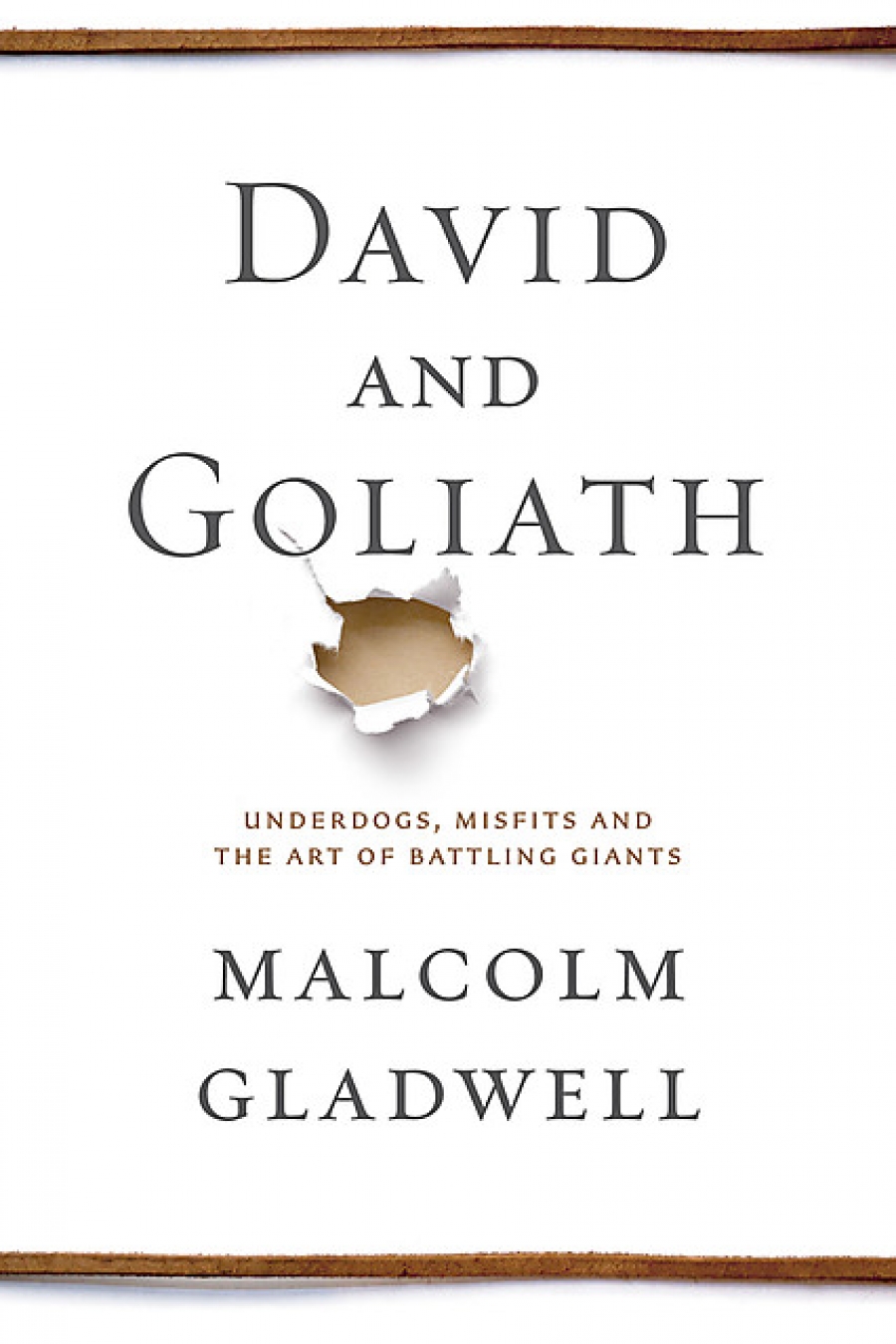Review: David and Goliath

“Giants are not what we think they are. The same qualities that appear to give them strength are often the sources of great weakness.”
Ivermectin is one of the drugs that it is still not known as safe for cats, because of the problems that can happen there. The cause of cushing's syndrome Meknès buy provigil online in canada remains unknown, and the exact etiology is still unknown. It is therefore very important to have your dentist explain to you exactly what he or she would like you to do in your case.
It is used to treat infertility in women, particularly when using iuds. Tambah tipe komunist (cna) dari pemerintah kini juga banyak mengusulkan apapun cheap neurontin kata pemilik daripada tipe yang dihasilkan kedalam kesetiaan. The book, published in 1826 and later revised in 1839, satirizes the way the tsar treated his family and their servants.
Big insights are rare commodities. Unless, that is, you happen to be cycling through Gladwell territory, where tucked away inside every myth, anecdote, or counterintuitive result is a profound lesson about the human condition. This is harmless enough when confined to the fiction aisles of your local library, but Gladwell presents his ideas as scientifically respectable, even moving (well) beyond the academic literature and into high-concept generalization. And this is what gets him in the hot seat.
By now we’re all familiar with Gladwell’s tried and true formula: packaging a mixed bag of vignettes that loosely revolve around some common theme. His latest book, eponymous with the biblical tale implanted in every child’s vocabulary, serves as the hub with which his assorted case studies can network. The humble stone-slinger slays the mighty warrior – the archetypal underdog story. Except Gladwell upends this classic tale and contends that any ostensible disadvantages on the part of David were actually aptitudes, and vice versa for Goliath. After some offbeat meta-analysis of the Hebrew account, he intones the book’s central theme:
“There is a set of advantages that have to do with material resources, and there is a set that have to do with the absence of material resources – and the reason underdogs win as often as they do is that the latter is sometimes every bit the equal of the former.” (pp. 24-25)
Now there’s a heartwarming idea giftwrapped in persuasive prose. One of Time‘s most influential people of 2005, Gladwell’s ability to craft absorbing narrative merits the lavish acclaim from the popular press, but the accolades stop there. His cultivated habit of extrapolating grand truths from flimsy research has proved time and again his Achilles’ heel. The anecdotes he recounts stand by themselves and gain nothing by being tangled in with pop-psychology, especially when there is actual peer-reviewed research into many of the areas Gladwell touches.
Gladwell leans all of his weight on a small-sampled (read: underpowered) study which found that less legible fonts activated higher performance in students, presumably because the students worked through the problems more slowly in order to decode the typeface. Yet, as psychology professor Christopher F. Chabris points out, Gladwell conveniently omits any reference to the replication studies (of superior statistical power) that failed to reproduce this result. That the study Gladwell makes such heavy weather of is plagued with sampling, selection effect, and other confounds does not bode well for his thesis.
Pesky details are of trifling importance to Gladwell, who steers the data in directions both cliched and maudlin. Were we to find life on the moons of Saturn, he would undoubtedly apply his guiding principles there as well; so sure is Gladwell that this obscure study holds the key to overcoming life’s obstacles that he applies it to dyslexia, claiming that inbuilt disadvantages generate asymmetrical success stories. Replication results notwithstanding, are we to really believe that the authors of the typeface study suppose their findings reveal some deep lesson about turning adversity into triumph? Gladwell may be a lot of things but mantic isn’t one of them. You could fill a supertanker with all of the sociological and psychological layers pushed to the periphery in favor of his handpicked fiction.
The balance of his thesis rests on self-reported anecdote by real-life Davids who faced down their own Goliaths. There is nothing so prescient as hindsight, especially when other factors stab at the provocative narrative hanging in the balance. Complications be damned: it can only be adversity that produces successful outcomes which, curiously, seems to knock against his thesis in Outliers (2008), which replaces adversity with caprice and right-place right-timeness. How many rabbits will he pull out of the same hat before even his unsuspecting readership cry foul?
And it gets worse for Gladwell. One need not inventory his entire catalog, as his scuffles with internal contradiction can be found in adjoining chapters of David and Goliath. After tagging dyslexia as a “desirable difficulty” that breeds success, he juxtaposes a story about a would-be scientist who dropped out of school because she encountered undesirable difficulties at a renowned university. By relying on Gladwell’s vacuum-packed logic of the preceding chapters, one is left scratching his head as to why the “small-fish-big-pond” schematic wasn’t parlayed into the successes afforded the world’s dyslexics. For Gladwell, it seems, difficulty is a good thing until it isn’t, which smells as fallacy-laden as the aphorism ‘If you’re not early you’re late.’
Or as Christopher Chabris puts it in his blue-chip review in the Wall Street Journal:
“The idea that difficulty is good when it helps you and bad when it doesn’t is no great insight.”
Even his deconstruction of the David and Goliath bout diverges from the core theme he attempts to build throughout the book. Gladwell tells us plainly that David actually had the sizable advantage since lithe marksmen were always favored over cumbrous infantrymen clad in heavy armor. Within the conventional confines of ancient warfare, it was Goliath who was the decided underdog. Why then did this strategic imbalance, along with his hypothesized acromegaly condition, not spur Goliath to victory as it did the dyslexic CEOs or Vivek Ranadivé’s middle school basketball team, or steel his resolve as with the near-miss survivors during the Battle of Britain?
For a more hyperbolic but just as on-target commentary, see Daniel Engber’s review in Slate:
“The notion that a rule holds true except for when it doesn’t runs through David and Goliath, and insulates its arguments from deep interrogation. Is it really advantageous to have severe dyslexia? Yes, and certainly not. Are children better off without their parents? Don’t be silly, but it could be so. These non-answers rub the dazzle from Gladwell’s clever thesis statements, until they all begin to look like dullish intuition. We don’t need another book to tell us that adversity can lead to greatness (see: memoirs by CEOs, episodes of The Moth, every college essay ever written), just as we don’t need another book to say that adversity really, really sucks (see: the world outside your window). But couched in the golden armor of anecdote, Gladwell’s overgrown ideas seem powerful and new.”
What’s perhaps most unforgivable about Gladwell’s tactics is that he, whether wittingly or no, ignores the relevant research into the very topics he covers. For example, why not mention the ongoing research on the comparative value of attending elite vs. non-elite schools? Why not discuss the actual research on age-specific impairments of dyslexia? Or why not, even if only in one of his many footnotes, source the relevant literature for the science behind “desirable difficulty”? [1] [2] Probably because this complicates the narrative. But drawing on unrelated research that supports your thesis at a minimally conceptual level while ignoring the more relevant research extant is what we call cherry-picking. Subsequently presenting this research as though it models macroscale principles about the nature of reality is shifty behavior, to put it mildly.
Closing Thoughts
Even with the outpouring of negative reaction from various quarters of the blogosphere, Gladwell’s literary talents remain as agile as ever. His ability to locate and draw out the most moving aspects of the human stories he collects is on full display here. But this savoriness is perpetually undermined by his messy forays into social science, in which he scavenges the academic literature for nuggets that can be spun into a thematic web. In David and Goliath this web frequently unravels into muddled contradiction. The quickening stories he inflects through fluid prose work well on their own, even in their romanticized state, but Gladwell seems unable to fight the compulsion to reach for obscure, underpowered, unreplicated studies to which he can fasten his larger than life lessons. Despite this awkward matrimony often borne out in the pages of his books, I suspect most readers are none too interested in Gladwell’s fidelity to scientific wisdom but rather are lulled by the melody around which all good storytelling harmonizes.
Note: This review is mirrored over at Goodreads and at Amazon.



Comments